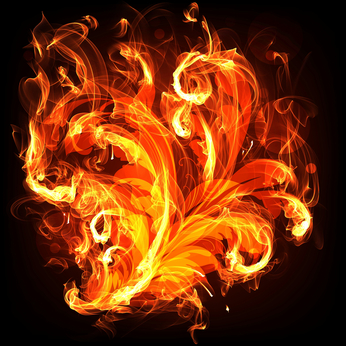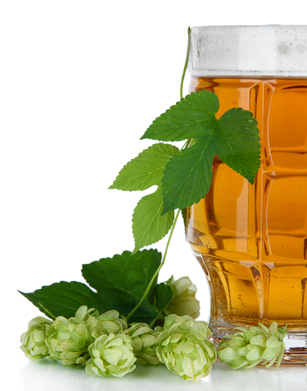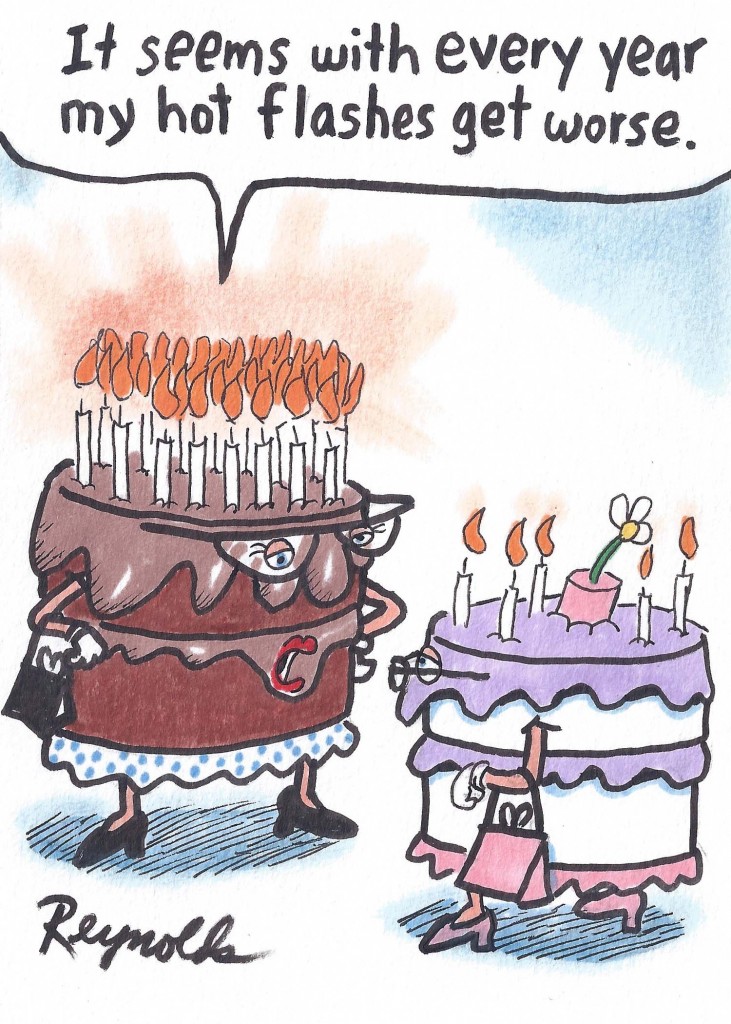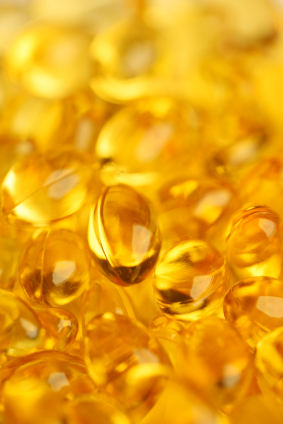Are hops the key to relieving menopausal symptoms?
The other day, a colleague pointed me to an Andrew Weil piece on hops and menopause. And while I’ve not checked out the association lately, I did write a few pieces over the years about the potential benefits of hops and hop extract for relieving hot flashes and even boosting bone health. So, I took a gander over at the National Library of Medicine database and ran across a minireview from 2013. Here’s a bit of information for those of you who enjoy a beer or two.
Hop extract (better know in scientific circles as Humulus lupulus) has had a long history of use as a medicinal herb, especially for gynecologic conditions. It is even recognized by the European Medicines Agency, which has published a monograph outlining its safety and effectiveness. But even more importantly, hops evidently contains a subclass of flavonoids — plant metabolites — that have been shown to be the most potent phytoestrogen known to date. Clinical studies in women suggest that it can offer some relief from hot flashes, help prevent osteoporosis and impact sexual desire. And the fact that it is the ‘most’ potent? It’s interesting because most people don’t realize that to truly benefit from genistein, the most potent phytoestrogen derived from soy, one must be exposed to it throughout their lifetime. On the other hand, studies of 8-PN show that it is quickly absorbed and blood levels can also be reached fairly quickly so that women can benefit relatively shortly after taking a supplement. Less clear is the proper dosage need to alleviate menopause complaints. This hops extract has also been studied in vaginal gel form for vaginal atrophy, although no firm conclusions could be drawn for that use.
So far, the benefits of 8-PN appear to be limited to hot flashes, bone health and sexual motivation. The data on safety are less robust.
Will drinking beer help your hot flashes? The answer isn’t clear. But I still believe that there is hope for hops.
Read MoreNewsflash: Yoga and hot flashes
When it comes to alternative strategies for managing hot flashes, where do you turn? I’ve been writing about alternatives for five years now and the only thing I am fairly certain of is that what works for one woman doesn’t necessarily work for the next. Consider the management of menopausal symptoms similar to the management of any condition: the best treatment is always individualized.
Still, mind-body practices tend to rise to fore and evidence continues to accumulate supporting their value and usefulness. This is especially true of meditation, and of yoga.
The latest news on yoga comes from the online edition of Menopause journal and researchers are saying that integral yoga practice may help to reduce hot flash frequency among some women.
Integral yoga integrates the various branches of yoga and focuses on a whole body approach with the goal of transforming the entire being. Experts say that it is especially well suited to hot flashes because it emphasizes stress reduction and decreasing the likelihood of becoming overheated.
To evaluate its usefulness in a more scientific setting, researchers asked a small group of women in perimenopause who reported at least four hot flashes a day to participate in 10 weekly, 90-minutes integral yoga classes comprising breathing, centering medication, physical postures and deep relaxation, or health and wellness classes on different topics relevant to menopause and midlife women’s health or no interventions at all. All had the option to join classes at any time, and were required to fill out diaries about their flashes.
The findings? The researchers say that even after controlling for a potential placebo effect, both the yoga and health and wellness groups tended to follow a similar pattern and a similar significant decline in hot flash frequency. Women in these groups reported an estimated 66% (yoga) and 63% (health/wellness) decrease in the frequency of their hot flashes. And, while the effectiveness of yoga to lower hot flash frequency was not considerably different than that of the health/wellness education classes, the inclusion of the two behavioral interventions may perhaps capture naysayers’ attention; most studies only include on behavioral intervention and having two helps to temper bias.
We need more studies like this one to tease out the benefits of behavioral interventions. The good news is that the information is there for those who look deeply enough.
Read MoreStill flashing after all these years…
 Oy! I’ve got some rather troubling news to share: your hot flashes may continue for up to 9 years after menopause begins and in some women, they may continue past the 10 year point.
Oy! I’ve got some rather troubling news to share: your hot flashes may continue for up to 9 years after menopause begins and in some women, they may continue past the 10 year point.
Findings from the Penn Ovarian Study suggest that in women with moderate to severe hot flashes, almost half will see their flashes peak during the two years after menstruation stops and then they will continue to decline slowly to premeonpausal levels. Overall, in the 255 women studied, hot flashes lasted a mean 4.6 years among all women regardless of severity, while women with the worst symptoms had hot flashes that lasted nearly two times longer than their peers.
In this group of women, important factors influencing hot flashes included FSH levels before the final menstrual period, body mass index, and anxiety. And, not surprisingly, when the total duration of hot flashes was considered, including the time in perimenopause, African-American women had longer mean total duration of hot flashes (9.5 years) compared to white women. Previous studies have also shown that race is a factor when it comes to menopausal symptom severity and duration.
The study lasted 16 years and the researchers say that it’s not clear how the numbers would have changed had the women been studied longer. Additionally, current hormone users and women who went into early menopause due to surgery were not included, meaning that the findings might not be generalizable to a pool of women beyond healthy African-American and white women with untreated symptoms.
Still, the findings show that women can expect their hot flashes to last an average of four to five years after their final menstrual period. This emphasizes the importance of preparation and establishing a relationship with a knowledgeable health practitioner so that regimens and strategies can be modified accordingly throughout the pause… The more you know!
Read More
Wednesday Bubble: Evolution?
Do they or don’t they? Inquiring minds want to know!
Tell me what your flashes are like and how they’ve been as you’ve been moving through the ‘pause. Hopefully, we can collectively come up with some effective solutions!
Read MoreMsFLASH and omega-3s
In early August, I posted two pieces about MsFLASH –Menopause Strategies: Finding Lasting Answers for Symptoms and Health — a network of studies evaluating potentially promising treatments for common menopausal symptoms. Started by the National Institutes of Health, MsFLASH comprises five research centers in Boston, Oakland, Philadelphia, Seattle and Indianapolis who are exploring various interventions for hot flashes, night sweats, mood disorders and sexual issues.
One of these trials set out to evaluate the role of omega-3 fatty acids in menopause, more specifically, whether or not omega-3s would be useful for alleviating hot flashes in women who prefer alternative strategies. Although the benefits of omega-3s are widespread, researchers have not been able to prove that they work against hot flashes. Consequently, over three months, 346 women took either three omega-3 capsules or placebo daily in addition to yoga, aerobics or usual activity. The women reported having roughly 8 hot flashes a day at the start of the study.
Unfortunately, the verdict is still out. Taking omega-3s appeared to have little effect on hot flash frequency or bother; declines in both measures were similar among women whether they were taking the fish oil or placebo (an average 35% decline in both groups and in both variables). What’s more, taking daily fish oil supplements didn’t appear to help sleep or mood. Personally, I find the lack of effect on mood surprising since there are data showing a benefit on depression, especially when it comes to DHA. However, even the researchers acknowledge that the lack of effect here might be due to the degree of depressive or anxiety symptoms that the women in this study experienced.
Regardless, if you are taking fish oils and have seen an improvement in symptoms, I would love to hear from you. Do they help? The search for the magic bullet for hot flashes continues but in the meantime, the more we share, the more we collectively know.
Read More
Newsflash: Ethnic, flashing and menstruating. Three’s a charm?
 Sounds too awful to be true. However, a study of an ethnically diverse group of women has shown that having regular periods, which, theoretically indicates that hormone levels are more on par than their menopausal sisters, may not be all that they are cracked up to be. In fact, among approximately 1,500 women (mean age 48.5), 54% reported having had either hot flashes (~33%) or night sweats (~46%) at some point and recently, anywhere from 17% (hot flashes) to 26% (night sweats). Moreover, it appeared that Black and Native American women were most vulnerable, while Asian women were the least. The numbers among white women were only slightly lower than their Native and Black peers.
Sounds too awful to be true. However, a study of an ethnically diverse group of women has shown that having regular periods, which, theoretically indicates that hormone levels are more on par than their menopausal sisters, may not be all that they are cracked up to be. In fact, among approximately 1,500 women (mean age 48.5), 54% reported having had either hot flashes (~33%) or night sweats (~46%) at some point and recently, anywhere from 17% (hot flashes) to 26% (night sweats). Moreover, it appeared that Black and Native American women were most vulnerable, while Asian women were the least. The numbers among white women were only slightly lower than their Native and Black peers.
What’s so interesting about these data is that typically, obesity has been associated with a self-reported increase in vasomotor symptoms among menopausal women. However, in this group of women, the researchers deliberately adjusted their findings for BMI and age, and they did not find that association. In fact, when they looked at Hawaiian/Pacific Islander women, who had, on average, the highest BMI of all the ethnic groups studies, only 45% reported ever having a hot flash or night sweat, compared to 58% of white women (who had some of the lowest BMIs amongst the group).
Why it matters…
Many women operate under the assumption that it won’t happen to them. Cancer won’t happen. Losing a spouse won’t happen. Having a hot flash or night sweat while still menstruating won’t happen. I refer to that as the ‘teenage mindset,’ since we all know that teenagers are among the most prone to the ‘won’t happen to me’ syndrome. And yet, the data suggest otherwise; even before menopause starts, a hot flash can occur. And it can be bothersome; of the entire group of women who said that they had had some sort of vasomotor event in the prior two weeks, anywhere from 38% (Asian women) to 80% (Hawaiian/Pacific Islander, Native Americans) said it was at least moderately bothersome. White and Black women fell in the middle.
I cannot emphasize it enough; early action is the best action. Don’t wait until you are in the throes of menopause; start now to boost your preventive strategies, whether they entail isoflavones, hypnosis, yoga or acupuncture. I am all for curtailing the worst wherever possible; shouldn’t you be?!
Read More









